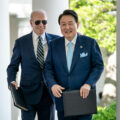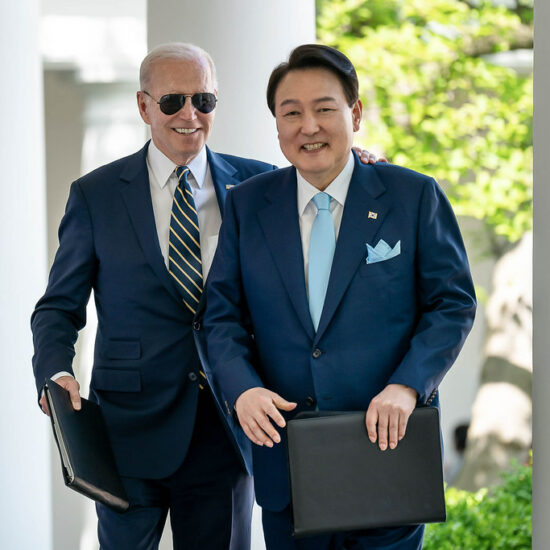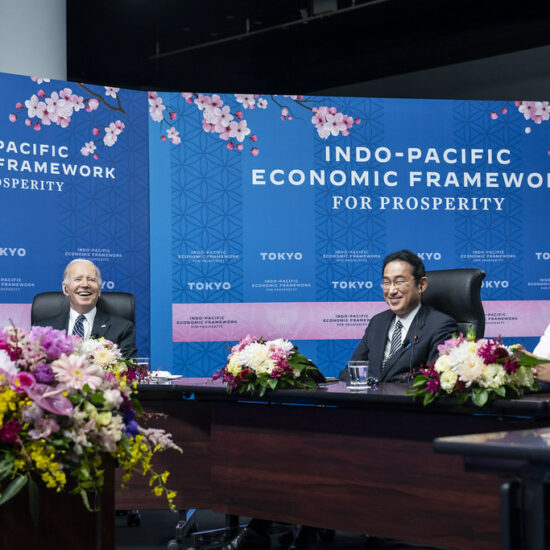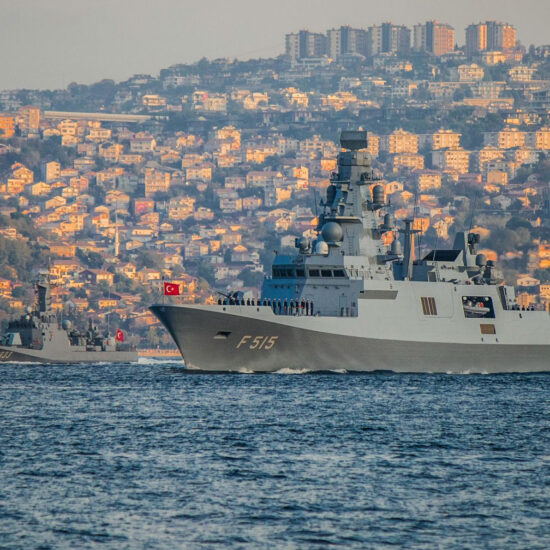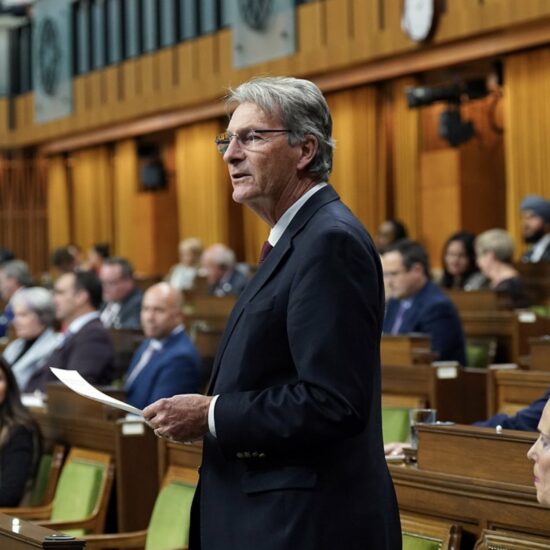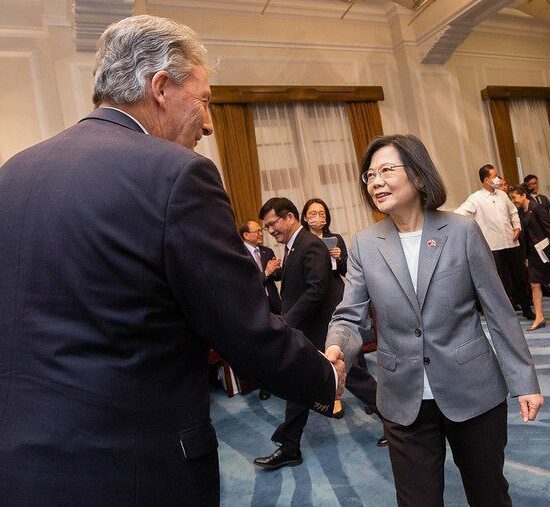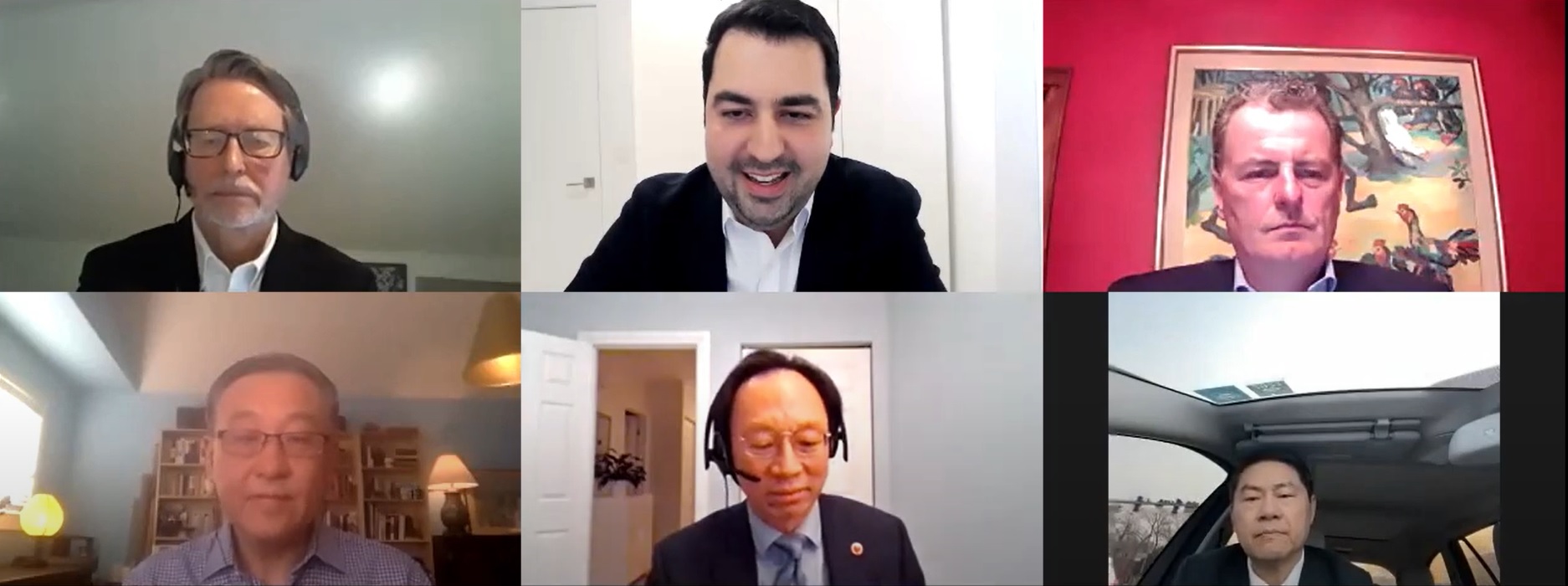
On February 24, 2021 the Institute for Peace & Diplomacy (IPD) hosted a panel discussion on ‘Assessing Canada-China Relations – Challenges and Opportunities.’ The focus of the panel was to reflect on past challenges, as well as discuss the short, medium, and long term considerations for Canada-China relations. The panel was organized into two parts. The first consisted of opening remarks by Senator Woo and the three panelists. The second focused on a Q&A with the audience.
We were thrilled to have Senator Yuen Pau Woo make the opening remarks at the event.
Our three distinguished panelists included:
- Dr. Paul Evans, Professor, School of Public Policy and Global Affairs, UBC
- Dr. Henry (Huiyao) Wang, President, Centre for China and Globalization
- Graham Shantz, President, Canada-China Business Council
This panel discussion was moderated by Dr. Wenran Jiang, Advisor to the Asia Program at the Institute for Peace & Diplomacy.
Moderator Dr. Wenran Jiang began the panel by summarizing the state of Canada-China relations, explaining that they hit a low point in 2018 when Canadians Michael Kovrig and Michael Spavor were detained in China following Canada’s arrest of Huawei’s CFO Meng Wanzhou on an extradition request by Washington. While last year marked the 50 year anniversary of Canada-China diplomatic relations, celebrations were replaced by mutual accusations. More recently, Canada led the Declaration Against Arbitrary Detention in State-to-State Relations. Last week, the Canadian Parliament passed a motion to label the situation in Xinjiang as a genocide.
In his opening remarks, Senator Yuen Pau Woo stated that there is now a deep desire to rethink Canada-China relations, with many people asking if Canada and China should even seek to improve the relationship at all. The foreign policy model in which major powers can compartmentalize issues while allowing other aspects of the relationship to move forward has now been severely challenged. While President Xi Jinping has brought about the decreased role of collective leadership in the Communist Party of China (CCP), Senator Woo argued that the regime itself had not fundamentally changed. Rather, China has grown more prominent and influential since the 2008 global financial crisis–a turning point for China’s evolution into a serious economic power. Senator Woo suggested that the West’s desire to rethink China is not about ideology, but rather about its rise. He also added that the US-China strategic competition will last decades, and as the competition deepens, their interests will outweigh the views and preferences of third countries, such as Canada. As such, the US-China rivalry will be the single biggest factor shaping relations between Ottawa and Beijing. The challenge will be for Ottawa to find the degree of freedom to navigate this great power rivalry.
Senator Woo continued by stating that calls to rethink the relationship have focused on identifying the problems, rather than the problematique, which would be identifying whether the US and Canada consider China to be an enemy, adversary, competitor or partner. Senator Woo referenced his soon to be published article in the International Journal in which he suggests “global neighbour” as an appropriate term: while one may not like their neighbour, they must learn to live with them. He then moved to discuss the unhealthy context that discussions on China now take place, with anyone in Canada who offers a view that is considered to be even slightly aligned with China running the risk of being labelled as disloyal or a stooge for the CCP. This trend is symptomatic of a larger development, in which “litmus tests” on China-related issues seek to box individuals into neat “pro-China” or “anti-China” categories.
Dr. Henry (Huiyao) Wang expressed his disappointment about the decline of Sino-Canadian relations, as he recalled that Canada was the first G8 country to recognize the People’s Republic of China. He added that for his generation, Canada represented a peaceful and friendly country with an occasionally independent foreign policy. Dr. Wang stated that there is tremendous goodwill between Canada and China, partially due to the growth of the Chinese population in Canada, student exchanges and tourism. He stressed that he is cautiously optimistic, particularly due to US President Joe Biden who has thus far pursued a much more pragmatic and realistic approach compared with former President Donald Trump. He argued that ideological and geopolitical conflicts should be set aside in order to address issues such as climate change and the pandemic. Dr. Wang stressed his hope that China can work pragmatically with Canada, as well as the US, EU, Japan, Australia and other states.
Graham Shantz explained that 70 percent of the members of the organization he leads, the Canada China Business Council (CCBC), consists of small and medium size enterprises, with another 20 percent consisting of educational institutions–reflecting the people-to-people dimension and change in Canada’s interests in China. Due to the changing demographics in China, they are already experiencing a shrinking labour force and a change in the nature of consumption, though China still sees rapid growth and economic success due to the creation of wealth, urbanization and new industries. Shantz argued that for Canadian economic interests, capital flow matters more than exports and imports. He added that since the climate change agenda is a top priority for North America, as well as for China, Canada should look into this further given its knowledge, business and government interests in that area.
Dr. Paul Evans began by discussing Canada’s vote in the House of Commons on the Xinjiang Genocide Resolution, which he argued was a significant indicator of the state of relations, as well as of the prospects for future relations. While it is not a binding resolution, the 266 votes, compounded with the national opinion polls that show only 15 percent of Canadians view China favourably, does indicate the balance of opinion in Canada. This demonstrates how far the Canadian media and information landscape has shifted on matters related to China in the past two to five years. Dr. Evans stressed that it is not currently a healthy environment for considering alternative approaches to China, and the election of President Biden will result in Canada having less, rather than more or equal, room to vary from the US approach. While the Biden administration works to identify the right balance between strategic competition and collaboration, Canada will have to decide whether it will work in defence of a rules-based international order or engage in strengthening multilateral institutions. Dr. Evans explained that Canada has long told China that it can be close to the US while simultaneously remaining independent. However, the current trend is toward a reduced amount of independence and increasingly negative attitudes toward China. He argues that a resolution to the Huawei affair and the release of the 2 Michaels will not necessarily lead to a complete reversal in souring relations.
The panel then moved into the question and answer portion. Dr. Jiang began by asking Dr. Wang about what China can do to improve the relationship. Dr. Wang expressed his disappointment at the current state of bilateral relations, and suggested that both Canada and China have followed their respective rights, as well as interpretation of events. Now, however, there are many encouraging signs, due to a general resurgence of a multilateral and collective spirit, and with President Biden considering China as a competitor, rather than an adversary. He called for the return of multilateralism, specifically mentioning the prospective Iran-US talks, which China is interested in joining.
In response to a question about the extent to which Canada relies on China economically, Shantz stressed that while China is the second largest economy, it is still far behind the US in terms of economic importance. However, for Canadian long-term interests, the flow of people through immigration, student exchanges and tourism is by far the most important. He also explained that as states in Asia are undergoing an energy transition, they are interested in an alternative energy supply from a reliable and politically stable supplier like Canada. While it is possible to diversify into other markets, China is the largest import market of energy and will likely remain so for the foreseeable future. Shantz noted that, in 2020 alone, Canada sold one billion dollars worth of oil to China. He argued that cutting off trade would risk hurting Canada more than it would help it.
Next, a question about the impact that deteriorating Canada-China relations would have on educational institutions was directed to Dr. Evans. He explained that the world is now in a state of techno-nationalism, with universities under pressure to safeguard research, exercise more diligence in regard to partners and the end use of research conducted. As the definition of national security items widens to not just focus on dual-use military equipment and artificial intelligence, it will become tied to human rights issues as well.
Senator Woo was then asked to comment on the role of Chinese-Canadian communities in relation to the ongoing tensions. He began by stressing that it is crucial to remain vigilant about foreign interference, particularly from China. In regard to anti-Chinese racism, Senator Woo identified anti-China sentiment as the single biggest driver and stressed that racists do not distinguish which regime a person supports. He finished by highlighting the diversity of views among the Chinese-Canadian community and arguing that it is problematic to define Chinese-Canadians by their differing views on the People’s Republic of China, Hong Kong and Taiwan. This will cause them to be seen as foreigners advocating for issues in their homeland rather than citizens of a multicultural Canadian society.
In the final portion of the panel, Dr. Jiang asked the Canadian panelists to briefly summarize what they would like Dr. Wang to convey to the Chinese authorities, and asked Dr. Wang to also describe China’s wish list of actions Canada should take to improve bilateral relations.
Dr. Evans began by stressing his hope to deepen discussions with Chinese colleagues and universities on the rules for academic and student exchanges, as well as research in the context of concern over intellectual property and academic freedom. Shantz echoed Dr. Evans, stressing the importance of maintaining flows into the future. He also underscored that China’s leadership will be required for global economic growth. Senator Woo suggested that China should make an effort to understand that Canadians express views on values they feel strongly about.
Dr. Wang ended by noting that other states will have to accept China and its growth, adding that China is a positive actor in global multilateralism on issues such as climate change. He expressed optimism given that President Biden replaced the term “rivalry” with “strategic competitor,” and stated his hope that collaboration between Canada and China will continue, given the many existing bilateral ties, as well as the goodwill the two states share.

